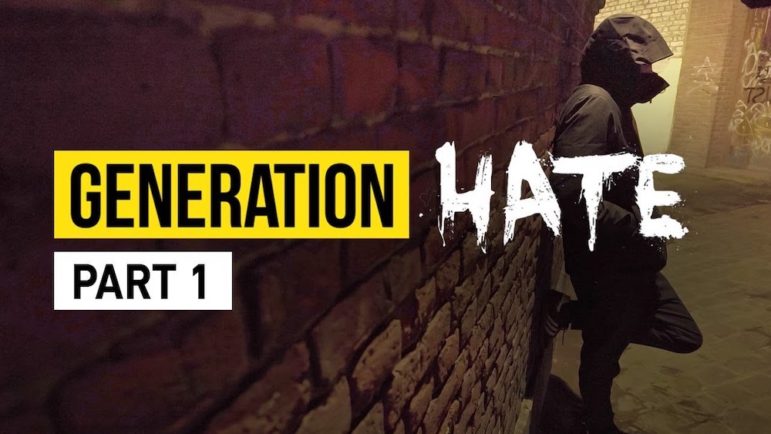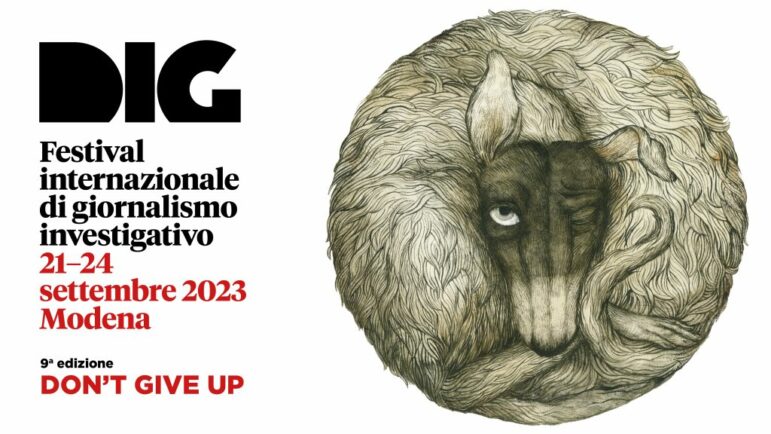

Your Weekend Documentary Viewing: Finalists for the 2019 DIG Awards
The fifth edition of DIG Festival, the annual international conference that celebrates and awards the best investigative documentaries in the world, is fast approaching. This year’s conference will be held from May 30-June 2, as always in Riccione, Italy.
And it’s already time for some action. The jury, chaired by Canadian author Naomi Klein, has selected the finalists from more than 250 nominations coming from 20 countries, across seven categories: Investigative (long and medium), Reportage (long and medium), Masters, Shorts and the Pitch. This year’s submissions focused on wars, corruption and migration — as well as issues like climate change, exploitation of natural resources, minors’ rights and socio-economic injustices.
Here are this year’s finalists (congratulations, y’all!):
Category: Investigative Long
Al Jazeera presents “Generation Hate,” a one-year undercover investigation among the most violent groups of the French far-right close to Marine Le Pen’s party.
Australian reporter Evan Williams is the author of “Myanmar’s Killing Fields,” a journey into a ravaged Myanmar on account of persecutions against the Rohingya minority, realized with exclusive video materials that were also used by the Office of the United Nations High Commissioner for Human Rights.
Isabelle Ducret, a Swiss journalist, presents “Online Crooks, Stealing Hearts (and Wallets),” an inquiry into the international network of online dating scams at the expense of men and women in search for a companion. The work is made even more interesting by its peculiar angle: The investigations are not in the field, but internet-based.
Category: Investigative Medium
Emmanuel Morimont, a journalist at Belgian public broadcaster RTBF, in “Synthetic Pitch, Damned Turf?” analyzes the health and environmental risks caused by fibers employed in synthetic fields.
Paul Lewis (The Guardian), with his “How Steve Bannon’s far-Right ‘Movement’ Stalled in Europe,” studies Bannon’s European and Italian networks.
Roman Anin, reporter for Novaya Gazeta and OCCRP, delves into the impressive wealth of Vladimir Putin’s guards in “Putin’s Bodyguards Rewarded With Land and Power.”
Category: Reportage Long
Francesca Manocchi and Alessio Romenzi, freelancers, are the authors of “ISIS, Tomorrow,” a documentary on children growing up in ISIS territories.
Marjolaine Grappe, with “All the Dictator’s Men“ — broadcast by Arte — takes us on a journey into the circles that funded the North Korean nuclear program.
Annie Kelly, reporter for The Guardian, directs “The Trap,” a work condemning the exploitation in using prostitution among female jail detainees in the US.
Category: Reportage Medium
With “After War: Afghanistan,” Mexican filmmaker Rodrigo Hernàndez reflects on the long-term consequences of war.
Diogo Cardoso and Sofia da Palma Rodrigues, both Portuguese journalists, with their “Elalab — Zé Wants to Know Why,” highlight the damages caused by climate change on African coasts.
Alex Gohari and Léo Mattei represent the French team from “Mexico: Looking for Lost Migrants” that investigated “The Beast,” an infamous death train on which the majority of refugees travel towards the US.
Category: Shorts
The BBC Africa Eye team’s “Anatomy of a Killing” identified the perpetrators and exact location of a crime committed in an unrecorded site in Cameroon. The inquiry went viral after a video was released online, with the crime reassembled from thousands of kilometers away using cutting-edge technologies, all open source.
Ibrahim Alshamaly adopts more traditional on-site investigation methods for “Under the Ground,” which shows the alarming medical situation in Hama and Idlib. The hospitals of the two cities, intentionally bombed by the Syrian opposition, Assad’s regime and the Russian army, have been replaced by underground, makeshift structures.
The documentary of Almudena Toral, a Spanish filmmaker, “Nightmares and Selective Amnesia,” tells the traumatic experience of Adayanci Pérez, a Guatemalan girl taken from her parents by Donald Trump’s anti-refugees policy.
Category: Masters
The finalists in the Masters section are “Bellingcat” by Hans Pool, “The Cleaners” by Hans Block and Morits Riesewieck, and “The Panama Papers” by Alex Winter.
Category: DIG Pitch
The DIG Pitch funds the pre-production of a new and unreleased work through a contribution of €15,000.
The eight projects shortlisted for 2019 are: “El Maestro,” by Lorenzo Giroffi and Alfredo Bosco; “Erasmus in Gaza,” by Chiara Avesani and Matteo Delbò; “Hooligan’s Life,” by Brando Baranzelli; “Iraq Without Rivers,” by Sara Manisera, Francesca Tosarelli, Arianna Pagani and Silvia Boccardi; “Juanto: A Writer from a Country Without Bookstores,” by Marc Serena; “Macelli,” by Chiara Caprio and Andrea Morabito; “Share The City, Destroy Life,” by Hibai Arbide Aza and Rodrigo Hernández Tejero; and “We Are Not Our Mothers,” by Brishkay Ahmed.
This article first appeared on the DIG Awards’ Medium page and is reproduced here with permission.
 GIJN member DIG is an Italian network supporting and training investigative reporters. Established in 2015 and capitalizing on the 20 years of experience of the Ilaria Alpi Association, it runs the annual international DIG Awards for investigative video journalism in Riccione, Italy.
GIJN member DIG is an Italian network supporting and training investigative reporters. Established in 2015 and capitalizing on the 20 years of experience of the Ilaria Alpi Association, it runs the annual international DIG Awards for investigative video journalism in Riccione, Italy.










